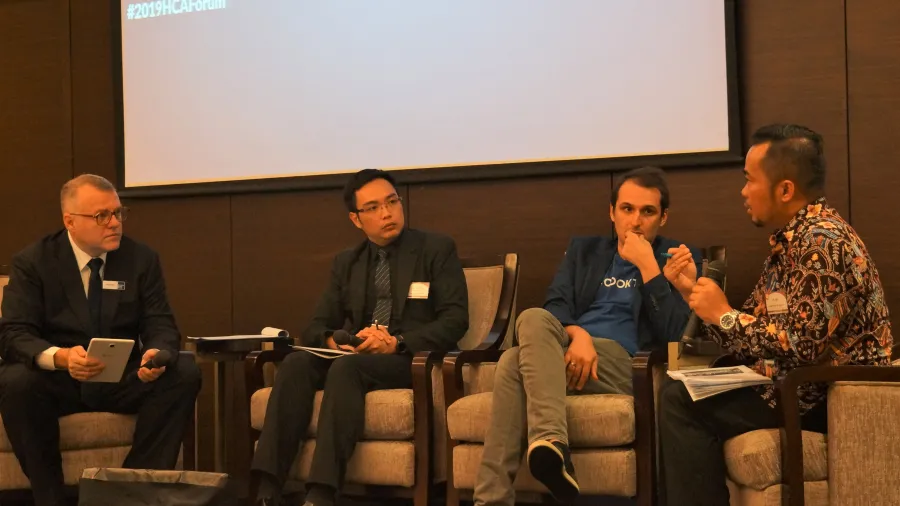
Indonesia's hospitals brace for disruption in healthtech and consumer behaviour
Traditional business models are being broken due to changes caused by healthtech and moves towards universal healthcare.
At the Jakarta Leg of the 2019 Healthcare Asia Forum, over 40 attendees from 28 hospitals, including practitioners from Singapore, exchanged case studies and strategies on how to deal with disruptive elements that comprise not only the growth and failure of healthtech but also generational changes and the optimisation of a universal healthcare policy.
Siloam Hospitals Group commercial group head Amelia Hendra shared how the firm is marketing healthcare services to the millennial generation – which is expected to comprise 44% of Indonesia by 2030 – by dropping traditional marketing techniques and integrating values of transparency and innovation. According to her, the hospital is also providing consumer education through their app, which is being continuously developed to be a platform for their services.
Meanwhile, Awal Bros Hospital Group hospital director Dr. Aditya Nugraha, M. Biomed, discussed how a “disruption wave will eat an organisation” if it does not defend itself from five disrupters, namely, personalized medicine, the Amazon effect, the digital revolution, regulatory changes, and changing consumerism patterns.
One of the potentially disruptive healthtech in Indonesia is the machine learning-driven app Alodokter, founded by CEO Nathanael Faibis, who shared that 80% of the 300,000 monthly teleconsultations can already make the “right recommendation.” Moreover, it removes the need for patients and doctors to communicate using other potentially unsafe messaging apps by having them interact with each other through the app.
However, Omni Hospitals Group deputy group CEO Dr. Num Tanthuwanit warned that a lot of healthtech could fail due to the mismatch of the provider’s readiness and technology, actual bad technology, the ignorance of the last mile, the lack of optimisation, and “short-term thinking.”
Tanthuwanit cited his administrative experience in Bumrungrad International Hospital, which involved utilising IBM’s Watson technology that was supposed to deliver AI-driven recommendations for cancer treatment but failed to use actual patient data and instead fed on hypothetical data. “It’s easy to get caught up when big names and big brands are involved,” he said.
Healthtech is not the only disruptive force that Indonesian hospitals should look out for. According to Chris Hardesty, KPMG life sciences director, universal healthcare is a $2t opportunity and that healthcare stakeholders can create a UHC environment through a political process model, which includes reframing debate, tapping into political opportunities, and mobilising resources.
In order to synthesize the healthcare industry into pushing for a UHC environment, the Indonesian government however still has a lot to deal with. Of the 2,831 hospitals in Indonesia, only 2,004 are accredited, according to Dr. Andi Saguniz, Ministry of the Health Republic of Indonesia director of health service facilities.
Saguniz also shared that the new minimum services standard that aims to impose the treatment of health as a basic service at the regional level will be piloted in 2019 and must be enforced by 2020. The government is also looking to increase the number of modern health centres from 264 in 2018 to 300 in 2019 as well as build three new hospitals in East Indonesia.
The 2019 Healthcare Asia Forum was held on 7 May at Fairmont Jakarta. For any event inquiries, please email [email protected].
















 Advertise
Advertise


